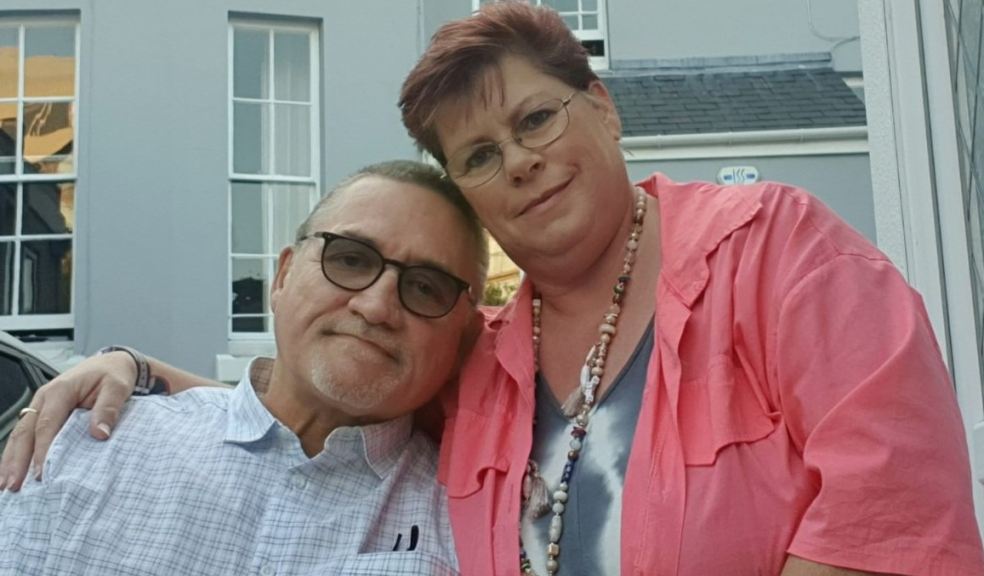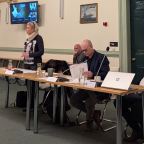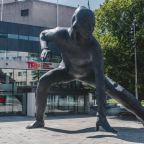
Stroke survivor’s petition to save ‘vital’ Devon service backed by more than 1,500 people
More than 1,500 people have signed a Devon stroke survivor’s petition to save the service which supported him and thousands of others in the county after their strokes.
The Stroke Association’s Devon Stroke Recovery Service is being forced to close because NHS Devon and Plymouth City Council have said they will no longer fund it.
The charity’s service helps people to rebuild confidence and independence by providing practical, emotional and social support, and to live the best life they can after stroke.
It has been running for approaching 20 years and each year around 1,470 stroke survivors are referred to it. Of these, more than 875 a year receive the more intensive 1-1 support they and their families need.
There are more than 32,000 stroke survivors in Devon, making the county one of the top three highest areas in the UK for stroke prevalence - the proportion of the population living with the condition.
Graham Devaney, 59, from Burrington, has been supported by the charity after his four strokes in two years left him with a range of disabilities.
“The Stroke Association was there for me when I was feeling at the lowest ever,” said Graham.
“If it hadn’t been for the support that I got from the Stroke Association, I feel that I may not even be here now. They have supported me in many ways and helped me by finding people I could speak to without any apprehension or any judgment on me.
“I would never have been introduced to my Life After Stroke Group and met so many stroke survivors that made me feel just the same as them.”
Graham’s petition at www.change.org/SaveDevonStrokeRecoveryService calls on NHS Devon and Plymouth City Council to save the service.
Graham’s views are echoed by Dannii Arksey-Venning, from Plymouth. She said the Stroke Association’s Stroke Recovery Service was irreplaceable in helping her cope with the life-changing effects of her stroke last year when she was aged just 30.
Dannii said the Stroke Association’s support coordinator John was a lifeline as she worked hard to be the mum her children Yazmyn and Arya - then aged 13 and five -needed.
Dannii said: “Me and my partner broke up. I had to leave my health and social care job. I have suffered with headaches, mood swings and fatigue. People need to understand the difficulties that can be caused by a stroke and how much we suffer socially and emotionally afterwards.
“The Stroke Association are there on hand when needed,” said Dannii. “I wouldn’t have understood all the side effects I get or been given the help to know what had happened to me.
“They helped me with my job, as I was given over 35 hours a week and was told by my stroke coordinator that was too much for me to cope with this early on after my stroke.
“It is upsetting knowing that people won’t have anyone at the end of the phone to talk to about their worries and concerns. I feel that with the amount of people that seem to be having strokes this service is irreplaceable. It is a shame that people in the future won’t get the help and support they need.”
Jacqui Cuthbert, the Stroke Association’s associate director for the South West and Channel Islands, said: “We have had to inform the 500 stroke survivors we’re currently working with that their support will end. It’s devastating for them and unthinkable for the 2,500 people every year who will be hit by stroke in the county.
“Because a stroke happens so quickly, people often leave hospital without being completely sure what's happened or why and totally unprepared for the many challenges that lie ahead.
“NHS Devon says other services in the county will continue to support stroke survivors but these organisations are not stroke specific and do not understand the complex and interrelated needs of stroke survivors and their families.
“Our Devon Stroke Recovery Service provides tailored support from hospital to home via a designated coordinator, who will address the long-term practical, emotional and communication needs of stroke survivors, their families and carers.
“The Stroke Recovery Service is a vital part of the clinical pathway for stroke survivors, easing pressures on clinical teams and delivering better patient outcomes.
“The cost per stroke survivor is relatively small, compared to the far greater cost to the system where people need NHS treatment for poor mental and physical health which may even lead to a second stroke, something that survivors fear the most.”
As well as signing the petition, people are being urged to write to NHS Devon. In Plymouth where Plymouth City Council funds an additional service where stroke survivor are offered a review to check their progress after six months, people can also contact the council and their local councillor.
NHS Devon ICB
- Telephone: 0300 123 1672 between 10am – 4pm, Monday to Friday
- Post: Patient Advice and Complaints team, NHS Devon, Aperture House, Pynes Hill, Rydon Lane, Exeter, Devon, EX2 5AZ
Plymouth City Council
Plymouth local councillors: www.plymouth.gov.uk/find-your-councillor














